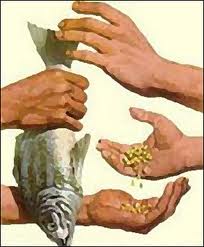The World According to Thomas Malthus
Thomas Malthus lived about two hundred years ago, a time when optimism was in the air; when it was believed that the problems of humanity will eventually be solved by man himself, and that through human willpower, reason, and the innate goodness of the human species all the world’s problems shall be solved, and we will live happily ever after.
But in the world according to Thomas Malthus, man’s future is as murky as the Dickensian London fog, and as grim as the slums found in every city of the world. Thomas Malthus saw poverty, sickness, and misery in man’s future; he saw a world where man is forever laboring for food that is never enough to satisfy the hunger of his children. What’s more, he saw that famine, diseases, poverty, war, and other miseries are necessary to ensure the survival of the rest of humanity.
Thomas Robert Malthus (1766-1834), who greatly influenced modern demographics, was born in England, and was educated in Jesus College, University of Cambridge. From 1805 until his death, he was a professor of political economy at the East India Company’s college in Haileybury, England, where his students affectionately referred to him as ”Pop,” for “Population Malthus.”
His work, “An Essay on the Principles of Population,” was first published in 1798. In it, he predicted that human population will eventually exceed food production, and so, hope for social happiness will be in vain, for population will always tend to outrun food production. Or, as Mr. Malthus put it, “Population increases in a geometric ratio, while the means of subsistence increases in an arithmetic ratio."
He also observed that man’s hunger for food and for procreation can never be satisfied, and that because food production cannot match the growth of population, the time will come when man will reach its limit and Earth’s resources will eventually be exhausted. When that happens, it will be the end for humanity. Therefore, natural checks are not only inevitable, but necessary.
What are those natural checks? Here, then, is the essence of the Malthusian theory. “Pop” Malthus stated that poverty, war, famine and diseases are the natural checks necessary for our survival. In other words, for the rest of us to live, some of us must die to make room. If this sounds familiar, it’s because this theory inspired Charles Darwin to formulate his theory of evolution--the survival of the fittest, in Herbert Spencer’s words. Later, he added another “check”—moral restraint. What does he mean by that?
“By moral restraint, I mean a restraint from marriage…” --- Thomas Malthus
What Malthus wrote about population (that man will exhaust the planet’s resources) is as true today as it was in 1798; it is also true that war, diseases, disasters, and other acts of God act as natural checks against population. Malthus was a realist with a pessimistic view of man’s future. He painted a world where humans cannot do anything to help themselves, and that any laws to help the poor, the sick, and those who need help, will not only not solve the problem, but will actually worsen the problem.
However, Malthus failed to anticipate agricultural revolution, which actually exceeded the food requirements of a large number of people--in some parts of the world, anyway. Also the incidence of famine has diminished. Contraceptives also has caused a decline in fertility rate.
Malthus is regarded as a man who greatly influenced modern demography. He also influenced Charles Darwin, Karl Marx, and other great writers and philosophers. The policy of the United Nations Population Fund is rooted in the theories of Malthus. His works continue to influence modern demography, and will most likely continue to do so in many years to come. Indeed, modern demography and its branches owe much to the works of Thomas Malthus.
Malthus’ theory sparked great controversy when it was published. More than anything else, the theory is not only about population increase and the hardships it will bring about, but rather what should be done about it. Malthus showed us a world of suffering, a future of forever searching for an elusive happiness, a happiness that is always out of reach. Like Gatsby’s green light.
What he showed the world, essentially, is that the nature of man cannot be changed, and that trying to change it will bring about greater hardships.
What, then, is to be done?






Comments
Post a Comment
So, what do you think? Post it here: